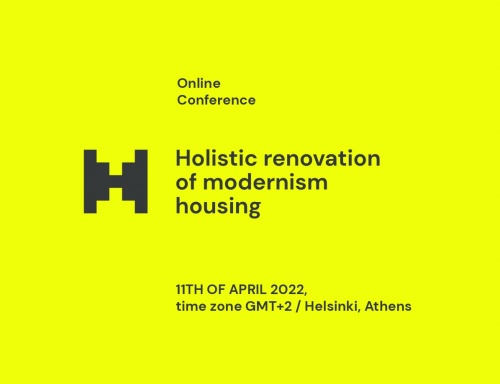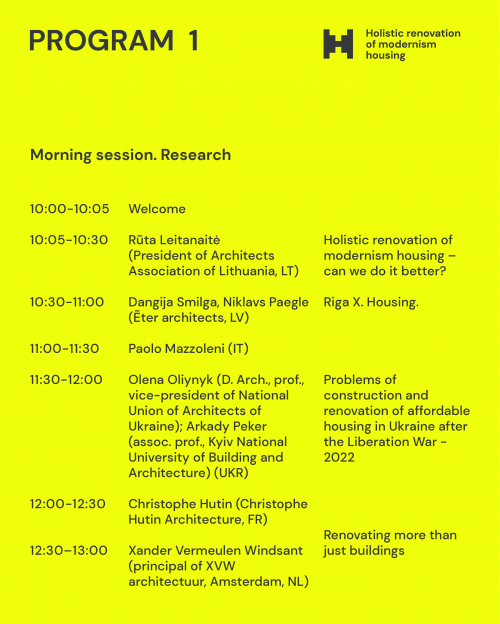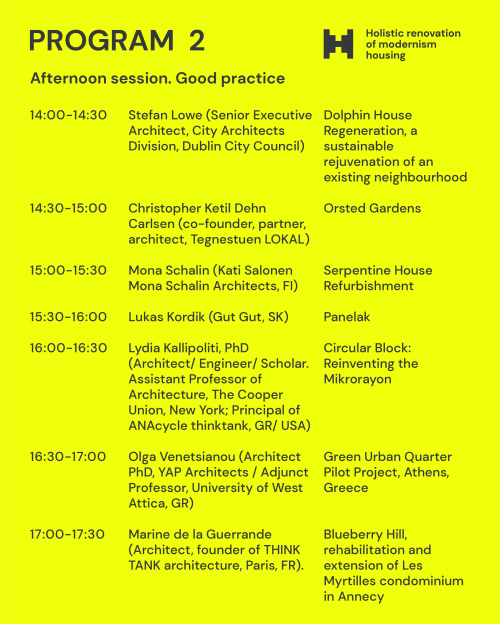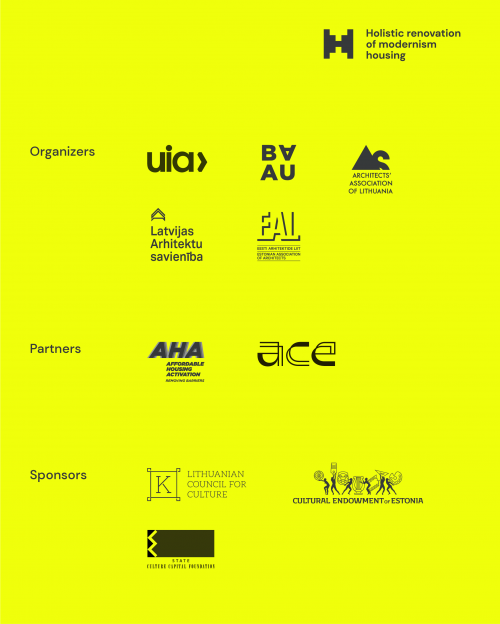Online conference “Holistic renovation of modernism housing”

About
The event “Holistic renovation for modernism housing” is a joint event of the International Union of Architects (Region 1 and Region 2). The event is initiated by the Architects Association of Lithuania and Baltic Architects Unions Association (BAUA). The partners of the event are Madrid Forum 2022 and Architects Council of Europe (ACE). The event is a side event of the Madrid Forum 2022 “Affordable housing”.
The Aims
To discuss the most relevant topics, to highlight the challenges, to share the experience and to present the best European practices of holistic renovation of modernism housing.
The event consists of:
1. An international online conference on 11th of April 2022.
2. An exhibition and a book (online pdf), featuring analytical texts and the selection of best examples of holistic renovation of the modernism housing from different countries. The exhibition to be exhibited in Madrid, 16th-30th of May 2022, during the Madrid Forum “Affordable housing” https://www.ahamadrid.com/.
Why?
The topic “Holistic renovation for modernism housing districts” is a Baltic response to New European Bauhaus (NEB) program call. However, we strongly believe that this topic is relevant to all the countries that have a vast legacy of the post-war period – huge districts (“micro-rayons”) of modernism, prefabricated housing stock. Post-soviet countries have to deal with the same problems and challenges, and other European countries are also considering the future of modernist housing.
The prefabricated housing, built some 50-70 years ago, is worn out, not energy efficient and not attractive to the inhabitants anymore. Additionally, to the poor physical state, this type of housing doesn’t correspond to the current needs and way of life of people, and often is perceived as dull, grey and visually not appealing.
Today, there are several different governmental renovation programs implemented by different countries, but usually it all ends with insulation and energy efficiency. With the series of events and activities, we are trying to rise a movement, to create a model / methodology and (in future stages) to implement a pilot project of something more: with improvement of each flat, common indoor and outdoor spaces, at the same time keeping the visual quality and architectural unity of the whole quarter. And, of course, the renovation process should include the inhabitants. Additionally, we’d search for chances for new financial and legal tools that would allow participation of different stakeholders (private and public) in renovation. Last, but not least, the renovation should not exclude the most vulnerable social groups (that usually dwell in such a housing); it should create an attractive living environment for everyone.


